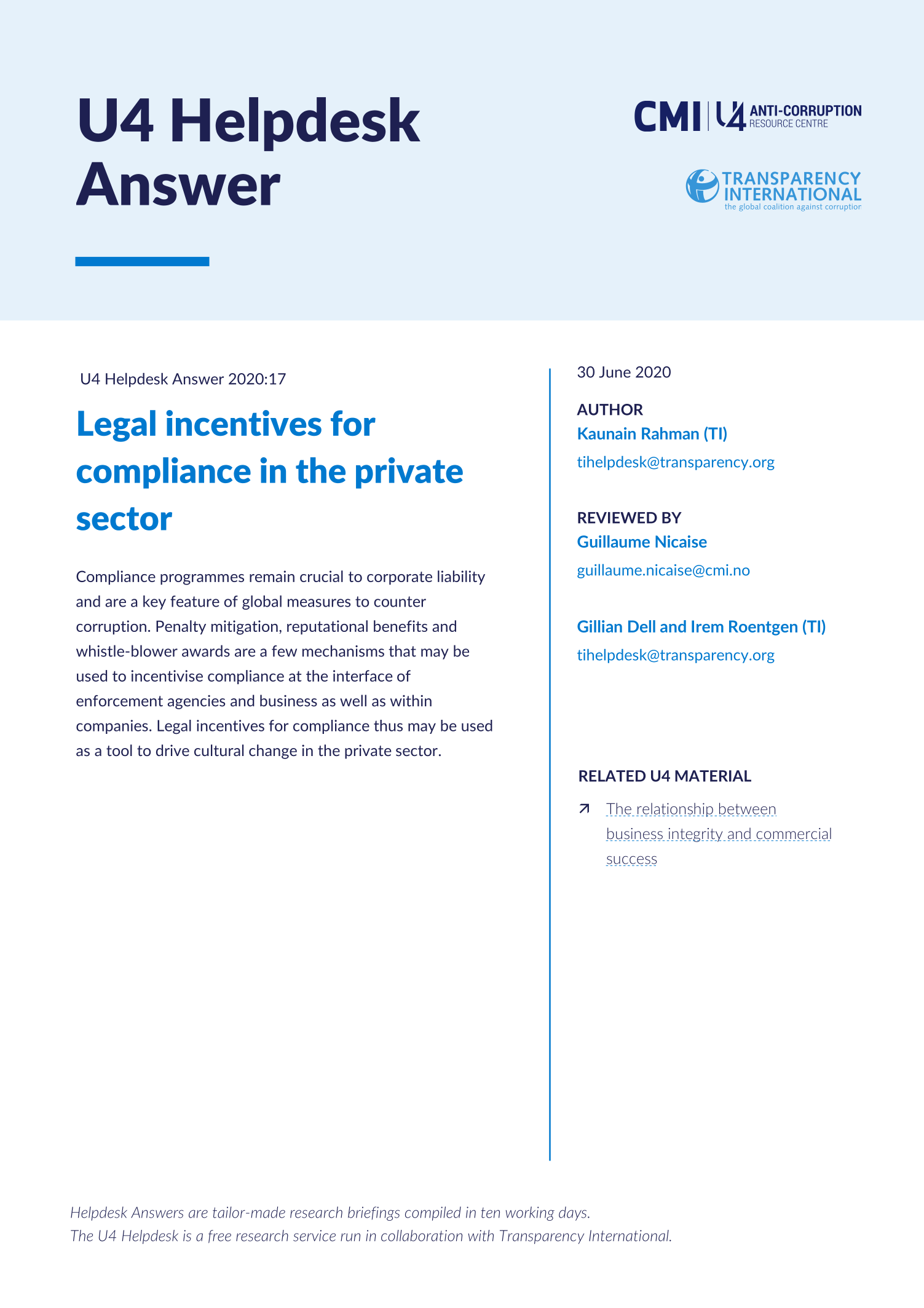Main points
- Ensuring corporate compliance with the law is one method of meeting the requirements of corporate liability.
- Disincentives in the form of fines, compensation for damages and harm to reputation remain the major motivations to apply compliance programmes to the private sector
- At the enforcement agency and business interface, legal defences or mitigation of punishment are the main forms of incentives for corporate compliance.
- The use of incentives in compliance procedures within businesses is also mentioned in a variety of legal standards (for example in cases of prosecution and settlement agreements).
- Whistleblower protection, within and outside business milieus, helps in the proper functioning of compliance programmes.

